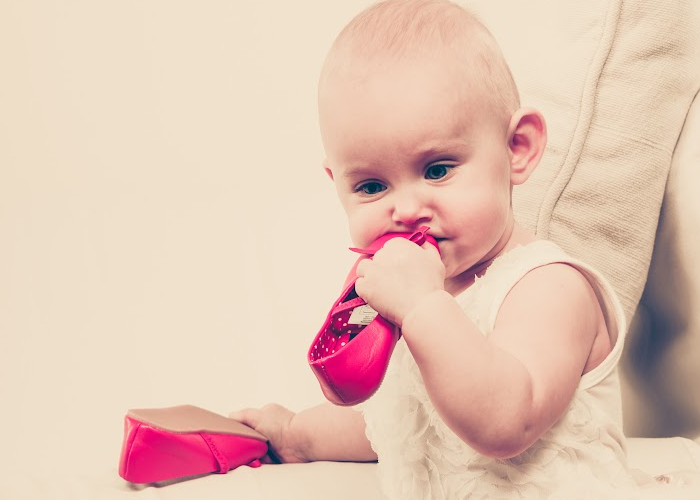It's crucial to know that students with autism and ADHD need special study strategies. Autism…

What to Use for an Autistic Child That Chews
If you have a child with autism, you may be familiar with the challenges that come with managing their sensory needs. One common behaviour among autistic children is chewing, which can be frustrating for parents and caregivers. Fortunately, there are many chewable toys for autism that can help redirect this behaviour and provide oral sensory stimulation.
Sensory chew toys are designed to provide both a tactile and oral sensory experience. These chewable toys come in a variety of shapes, sizes, and textures to suit different preferences. For a child who likes to chew on necklaces or other jewellery, chewelry for autism can be a great option. Teething toys for sensory needs and chewy tubes for autism can also be effective for children who need more intense chewing stimulation.
In addition to chewable toys, there are also oral sensory tools that can be used for chewing. These tools are often used in oral motor therapy and can help improve a child’s oral motor skills. Some popular oral sensory tools include chew sticks, chewable pencil toppers, and vibrating chewable toys.
When choosing chewing aids for your child, it’s important to consider their individual preferences and needs. Some children may prefer softer textures, while others may need more resistance. You can also consult with an occupational therapist or speech therapist for recommendations on the best oral sensory tools for your child.

Sensory Chew Toys for Autism
When it comes to finding the right chewable toy for your autistic child, it’s important to consider their sensory needs. Sensory chew toys can provide an outlet for oral fixation and offer proprioceptive input that can help soothe and calm. Here are some of the best sensory chew toys for autism:
Chewable Jewellery for Autism:
Chewable jewellery, is a great option for children who need to chew on something but also want to look stylish. These necklaces and bracelets are made of safe materials designed for chewing, such as silicone or rubber. They come in a variety of shapes, sizes and colours, so your child is sure to find one they like.
Chewable Necklaces:
Chewable necklaces are similar to chewelry but are shaped like traditional necklaces. They come in different textures and firmness levels, so your child can find one that meets their sensory needs. Some necklaces also feature breakaway clasps for safety.
Teething Toys for Sensory Needs:
Teething toys, such as those made of silicone or rubber, can also be used as sensory chew toys. These toys have different textures, shapes and colours that can provide oral stimulation and help with oral motor development. Some teething toys can also be frozen for added relief.
Chewy Tubes for Autism:
Chewy tubes are cylindrical chew toys made of silicone or rubber. They come in different sizes and textures and offer a more intense chewing experience for children who need it. Chewy tubes can also be used for improving jaw strength and coordination.
When choosing a sensory chew toy for your child, it’s important to consider their specific needs and preferences. You may want to try a few different options to see which ones work best for them. Always supervise your child when they are using a chewable toy to ensure their safety.

Oral Sensory Tools for Chewing
If your child is a chewer, oral sensory tools can be highly beneficial in helping them redirect their chewing needs. These tools are designed to promote oral motor sensory awareness, making it easier for your child to process sensory information through their mouths.
There are many different types of oral sensory tools available, including chewy tubes, chewelry, and teething toys. Chewy tubes are small, flexible tubes made of non-toxic materials and are designed to be chewed on. Chewelry, on the other hand, is a wearable jewellery item that doubles as a chew toy. Teething toys for sensory needs are also available and provide a range of textures and shapes to encourage exploration and provide relief.
When selecting oral sensory tools, it’s essential to choose tools that are safe for your child to use and made from non-toxic materials. Always supervise your child when they are using these tools to ensure they are using them appropriately and not posing a choking hazard.
One popular type of oral sensory tool is oral motor therapy tools. Oral motor therapy tools are designed to promote tongue and lip muscle strength and can include items such as toothettes, tongue depressors, and straws. These tools can help improve your child’s ability to chew and swallow more effectively, improving their overall oral health and function.
Incorporating oral sensory tools into your child’s daily routine can be highly beneficial, helping to promote attention, focus and relaxation. With so many different types of tools available, it’s essential to choose the right one for your child, and consulting with an occupational therapist or speech therapist can help you make the best choice.
Remember, oral sensory tools are a supplement to your child’s routine and should be used in combination with other therapies and management strategies. With the right tools and support, you can help your child manage their chewing needs and promote positive oral health habits.

Expert Advice and Tips for Choosing Chewing Aids
Choosing the right chewing aid for your child with autism can be overwhelming. With so many options available in the market, it’s important to consider a few factors before making a purchase.
Firstly, ensure that the chewable toy or sensory tool is safe and non-toxic. Look for brands that are specifically designed for children with sensory needs and have been approved by relevant authorities. This will ensure that your child can chew without any harm to their health.
Secondly, consider the texture, shape and size of the chewable toy. Different children with autism have different sensory needs, so it’s important to choose a chewable toy that suits your child’s individual preferences. For instance, if your child likes to chew on something firm, then a chewy tube might be a good option. On the other hand, if your child prefers something soft and flexible, a teething toy might be a better choice.
Thirdly, consider the durability and maintenance of the chewing aid. Most chewable toys and sensory tools are made to withstand heavy chewing, but it’s important to check for any signs of wear and tear regularly. Also, ensure that the chewing aid can be easily cleaned and sanitized to maintain good hygiene.
Expert Tip:
“It’s important to involve your child in the process of choosing a chewable toy or sensory tool. Let them have a say in what they prefer and make the decision together. This will not only ensure that they feel included, but also increase the likelihood of them using it regularly.
In conclusion, choosing the right chewing aid for your child with autism requires careful consideration of their individual needs and preferences. By keeping in mind the factors mentioned above and involving your child in the decision-making process, you can ensure that they receive the sensory input they need and improve their overall well-being.

Conclusion
If you are looking for chewable toys for your autistic child, sensory chew toys and oral sensory tools can provide relief for their chewing needs. Chewelry, chewable necklaces, teething toys for sensory needs, and chewy tubes for autism are just some of the options available.
Oral motor therapy tools can also be helpful for children who need to work on their chewing skills. It is important to choose the right chewing aids for your child, and consulting with a therapist or healthcare professional can be beneficial in making that decision.
Remember, each child is unique and may have different preferences for chew toys. It may take some trial and error to find the right one, but giving your child the opportunity to satisfy their sensory needs can make a big difference in their daily life.
Frequently Asked Questions
What are chewable toys for autism?
Chewable toys for autism are specially designed toys that can be safely chewed on. They provide a sensory outlet for individuals with autism who have a need to chew.
What are sensory chew toys?
Sensory chew toys are toys that provide sensory stimulation through chewing. They are often made from safe and durable materials and come in various shapes and textures to meet different sensory needs.
What are oral sensory tools?
Oral sensory tools are devices or tools that are specifically designed to provide sensory input to the mouth. They can be used to address sensory seeking behaviours such as chewing and biting.
What are teething toys for sensory needs?
Teething toys for sensory needs are toys that are designed to provide relief to individuals with sensory processing difficulties who may also be going through the teething phase. These toys offer both oral and tactile stimulation.
What are chewy tubes for autism?
Chewy tubes for autism are cylindrical tubes made from safe and non-toxic materials. They are often used as oral sensory tools to address the need for chewing and biting among individuals with autism.
Can oral motor therapy tools help with chewing?
Yes, oral motor therapy tools can be beneficial for individuals who have difficulty with chewing. These tools are specifically designed to improve oral motor skills, including biting and chewing.
What expert advice and tips are available for choosing chewing aids?
There are various expert tips and advice available for choosing chewing aids. These can include considering the individual’s sensory preferences, the level of oral stimulation required, and the safety of the materials used.



This Post Has 0 Comments